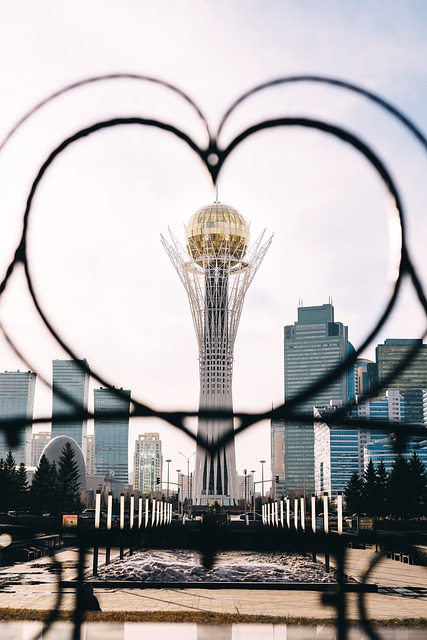Assessing Workers’ Rights in Kazakhstan’s Oil Sector
By Victoria Clark
Published on May 12, 2023

The world recently marked International Workers’ Day on May 1, a celebration of labourers and the working classes, the backbone of societies and drivers of industrial development. It was a day to acknowledge the importance of protecting workers’ rights, particularly in light of the many economic hardships experienced across the world.
In Kazakhstan, May 1 is devoted to the Day of Unity, rather than Workers’ Day. Nevertheless, the issue of workers’ rights has always been high on the agenda of the country, particularly in the oil and gas sector, an industry that is largely responsible for the economic growth and prosperity of Kazakhstan.
The interaction between oil workers and Kazakh authorities has not always been straightforward, particularly in the western part of the country, where most of the oilfields are located. In September 2021, the President of Kazakhstan, Kassym-Jomart Tokayev, visited the Mangystau region, located in the southwest of the country, and noted that 80% of all labour conflicts in the country are in this oil-producing region. Even though workers’ demands were met at least partially in most conflicts, according to the President, protests and strikes by workers from the region remain common and can even spill over to the heart of the country.
A case in point is the recent protest by oil workers from Zhanaozen, a city in the Mangystau Region, who arrived in Kazakhstan’s capital Astana to protest outside Kazakhstan’s Ministry of Energy. The workers demanded stable jobs and salaries and pledged to stay outside the ministry until their demands were satisfied. State-owned oil and gas company KazMunayGas (KMG) offered employment opportunities, retention of an average salary, social packages, and good working conditions. The offer was rejected by the workers. In the end, the leaders of the demonstrators said that most of the oil workers who had gathered would return home to Mangystau, while a small group would remain to continue negotiations with KMG.
Frequent demonstrations can create an impression that workers’ rights and conditions in Kazakhstan are poor. Yet it is precisely the fact that workers can strike and protest freely that enables the creation of a working relationship between the workers and the government. While this can get heated sometimes, the right to protest is fundamental to workers’ rights and it should be welcomed that Kazakhstan allows this.
The right to strike is enshrined in the Constitution of Kazakhstan: “The right to individual and collective labour disputes is recognised using the methods of their resolution established by law, including the right to strike.” In accordance with the Labour Code of Kazakhstan, workers can go on strike when it is not possible to resolve a collective dispute using conciliation procedures, or if the employer evades them or does not comply with an agreement that was reached during the resolution of the labour dispute. Ultimately, strikes and protests are a last resort, but one that is essential to ensuring that the rightful demands of workers are met.
Towards the end of last year, Tamara Duisenova, Minister of Labour and Social Protection of the Population of Kazakhstan, noted that more than 160,000 people work in the oil and gas industry in the country and that the protection of labour rights is one of the main tasks of the Ministry. The Minister emphasized the importance of employers ensuring equal working conditions and wages for Kazakh and foreign specialists with the same level of qualification, compliance with safety and labour protection requirements, as well as preventing violations of the labour legislation of Kazakhstan.
In addition, under the Ministry of Energy of Kazakhstan, there is the Industry Commission for Social Partnership and Regulation of Social and Labour Relations in the Oil and Gas, Oil Refining and Petrochemical Industries, which includes representatives of the Ministry of Energy, employers represented by the KAZENERGY Association, as well as workers represented by industry trade unions. Meetings of the Industry Commission are held on a quarterly basis. As part of the Industry Commission, issues are discussed relating to the regulation of social and labour relations of workers in the oil and gas industries, measures to prevent labour conflicts in the regions, as well as ensuring safe working conditions at oil and gas enterprises.
To implement the protocol instructions of the Industry Commission, Kazakh oil and gas companies developed and approved the Comprehensive Action Plan aimed at solving social and economic problems and preventing protests in contractor organisations and approved the Action Plan to improve the level of social stability in subsidiaries and affiliates of KazMunayGas.
Returning to the protests that took place in Astana in April, the Minister of Energy Almasadam Satkaliyev said that his department conducted negotiations with the workers from Zhanaozen. “We want to understand the final position, the final essence of the problem when it is formulated,” he said.
Protests and strikes serve their purpose, but they should never reach the point of violence, a situation which unfortunately has become quite frequent in certain European countries, particularly in France. In the case of Kazakhstan, authorities find the right balance between allowing demonstrations and protests, while at the same time communicating that violence is not tolerated. This approach enables the government and workers, which are represented by approximately 502 trade unions that cover approximately 3 million workers, to resolve any disagreements through peaceful means.
Finally, earlier this year the government approved amendments to legislation “On the introduction of amendments and additions to some legislative acts of Kazakhstan to simplify the procedure for resolving labour disputes and conflicts”, which secured the right to strike through trade unions or elected workers’ representatives. This norm is aimed at strengthening the role of trade unions in protecting the rights of workers. In addition, the legislation simplifies the procedure for putting forward the requirements of workers in the event of a collective labour dispute.
Ultimately, despite occasional shortcomings, Kazakhstan has prioritised the issue of workers’ rights, including in the oil and gas industry, which is essential to ensuring a prosperous economy and societal cohesion.
The Author

Dr Victoria Clark, Doctor of Political Science and International Relations and freelance political analyst.
Article pictures: bahonya via Pixabay and rob-armbruster via Pixabay


